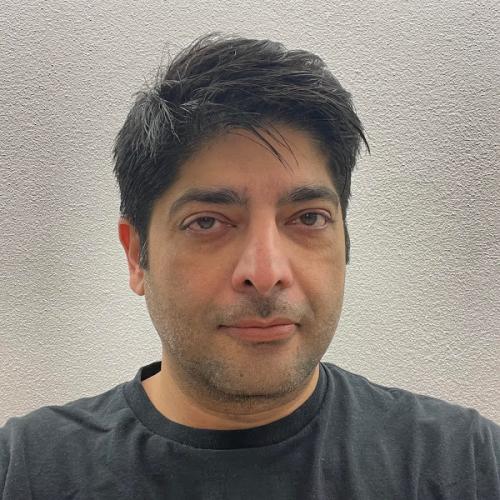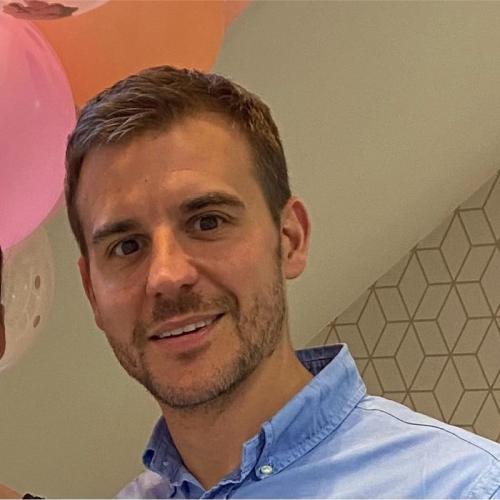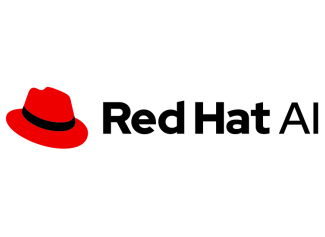
Andrew Fetterer
A seasoned product leader who is passionate about cloud and innovation , Andrew Fetterer serves as the Group Product Manager for Google Distributed Cloud. In this role, he is responsible for the outbound product management that shapes how Google Cloud infrastructure operates on-premises and at the edge for the world's leading organizations.
Throughout his career, Andrew has a proven track record of building and scaling platforms and infrastructure from concept to category leadership.

Niranjan Hira
As a Product Manager in our AI Infrastructure team, Hira looks out for how Google Cloud offerings can help customers and partners build more helpful AI experiences for users. With over 30 years of experience building applications and products across multiple industries, he likes to hog the whiteboard and tell developer tales.

Leo Leung
Leo Leung is a Director of Product Management for AI and Compute Infrastructure, shaping the strategy and development of Google Cloud's infrastructure offerings. Leo is an experienced product and marketing executive, launching over 100 products at both large vendors like Oracle Cloud Infrastructure and startups across cloud applications, platforms, infrastructure, and enterprise storage. Over the course of his career, he has led multiple product and go-to-market teams, and managed partnerships across the ecosystem including AWS, Microsoft, Google, NVIDIA, AMD, Cisco, Dell, HPE, and IBM. Leo has an MBA from the Tepper School of Business and a BA from Tufts University.

Sabastian Mugazambi
Sabastian Mugazambi is a seasoned technology leader with a passion for artificial intelligence and machine learning. As a Group Product Manager for Cloud AI Infrastructure at Google, Sabastian plays a pivotal role in shaping the future of AI acceleration. His focus on Cloud TPUs, Google's custom-designed machine learning processors on GCP, has enabled him to lead the charge on groundbreaking advancements in Cloud AI Infra technology. Sabastian's leadership as lead product manager has been instrumental in the successful launch of several generations of Cloud TPUs, including the v5e, v5p, and Trillium TPU. These innovations have empowered researchers, developers, and businesses to tackle the world's most complex AI challenges, from LLMs to broader cutting-edge generative models. With over half a decade of experience at Google, Sabastian has honed his expertise in the design, development, and deployment of AI infrastructure, and his deep understanding of the evolving AI landscape and commitment to delivering exceptional user experiences have made him a driving force in democratizing AI accelerators and making their power accessible to all through Google Cloud Platform. Previously, he founded and led a Natural Language Processing start-up that was acquired by a larger tech company and consulted on AI/ML programs for large tech companies.

Nathan Beach
Nathan Beach is Director of Product Management for Google Kubernetes Engine (GKE). He leads the product team working to make GKE a great platform on which to run AI workloads. He received his MBA from Harvard Business School and, prior to Google, led his own startup. He is a builder and creator passionate about making products that superbly meet user needs. He enjoys career coaching and mentoring, and he is eager to help others transition into product management and excel in their careers.

Sean Henry
Sean is the co-founder and CEO of Stord. Having experienced the antiquated and disconnected systems of fulfillment and consumer experience first-hand, when both running e-commerce businesses and working at an automotive manufacturer in Germany, Sean founded Stord in 2015 with Jacob Boudreau. Stord levels the playing field for brands of all sizes empowering them with the commerce enablement tools needed to provide a world-class consumer experience at scale. Sean attended Georgia Tech prior to founding Stord, and has since been recognized as a Thiel Fellow, in the 2019 Forbes’ 30 under 30 list, and in 2021 by Forbes as the youngest CEO of a $1B+ company.

Alistair Cliff

Prashanth Thinakaran
Prashanth Thinakaran is a Distinguished AI Infrastructure Engineer at Clockwork Systems, a pioneer in nano-second precise network telemetry and software-driven resilience that addresses the unprecedented scale, performance, and reliability Modern AI workloads demand from GPU clusters. In this role, he partners with AI Infrastructure teams at enterprises, hyperscalers and neoclouds to increase their visibility into issues impacting cluster uptime and optimize their availability and utilization with Clockwork’s solution.
Previously, he helped AI-native companies build on cloud-based GPU platforms, providing deep technical guidance on distributed training and inference, multi-node scaling, and performance tuning across complex infrastructure stacks. His Neocloud experience bridged the gap between product engineering and customer enablement, helping fast-moving teams adopt best practices in massive-scale model deployment and operations. Prior to that, Prashanth played a pivotal role at Cerebras Systems - a market leader in high-speed inferencing, - in the design, and deployment of Condor Galaxy 1, a Wafer-scale supercomputer. His work enabled rapid deployment timelines and seamless scaling of AI infrastructure across globally distributed data centers designed for both Inference and Training.
Prashanth also holds a Ph.D. in Computer Science and Engineering from Penn State, where his research focused on high-performance computing and cloud systems. His academic work has been published in top-tier venues including USENIX NSDI, ACM Middleware, ICDCS, and ACM SoCC. He has authored over a dozen peer-reviewed papers and a book chapter, and served as a reviewer for journals such as IEEE TPDS and TCC. During his Ph.D., he held teaching roles in systems programming, and computer architecture, and collaborated with Intel, VMware, and Adobe Research through internships, solving systems challenges at the intersection of academia and industry.

